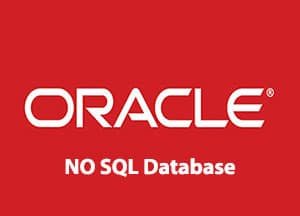BigData Hadoop Using Oracle NoSQL Database
| No upcoming Schedule available for this course. | Register |
|---|---|
| Did you know you can also choose your own preferred dates & location? click the register button. | Register |
| No upcoming Schedule available for this course. | Register |
|---|---|
| Did you know you can also choose your own preferred dates & location? click the register button. | Register |
Course Overview
Using the Oracle NoSQL Database, this course will teach participants what to expect from, its capabilities and benefits, and how it can be used for storing Big Data. This NoSQL Database training will explore NoSQL technology concepts, along with imparting an understanding of when to use Oracle NoSQL Database in place of an RDBMS.
Who Should Attend?
Course Outline
- Defining Big Data
- Big Data Evolution
- Introducing NoSQL Database
- NoSQL Database versus RDBMS
- Consideration Points Before Opting for NoSQL Database
- Oracle Big Data Solution
- HDFS
Module-2: Oracle NoSQL Database
- Defining the Oracle NoSQL Database
- Key Features and Benefits
- Supported Data Types
- How Does the Oracle NoSQL Database Work?
- Components of the Oracle NoSQL Database
- Partitions and Key-Value Pairs
- Accessing KVStore
- Introducing KVLite
Module-3: Designing a Schema
- Schema Structure
- What is a Key Component?
- Identifying the Major Key
- Identifying the Minor Key
- How is a Key Stored in the Oracle NoSQL Database?
- Design Considerations for Key Components
- What is a Value Component?
- Types of Value Component
Module-4: Consistency
- Understanding the Write and Read Process
- Understanding Consistency
- Default Consistency
- Applying Consistency
- Predefined Consistency
- Time-Based Consistency
- Version Based Consistency
Module-5: Durability
- Understanding the Write Process
- Understanding Durability
- Default Durability
- Applying Durability
- Synchronization Based Durability
- Acknowledgement Based Durability
Module-6: Credit Card Application and APIs – Overview
- Credit card approval application
- Analyzing the Data
- Designing the Schema
- Identifying the Key Structure
- APIs – Overview
Module-7: Administration – Overview
- Tasks of the Administrator KVStore Components – Review
- Replication Nodes, Shards, and Partitions Balancing a KVStore
- Security
- Defining Key Terms (Latency, Throughput, Cache)
- Steps to Deploy a KVStore (Plan, Install, Configure Installation, Configure KVStore)
Module-8: Planning the Installation
- Analyze Workload and Identify Hardware Resources, Install storage nodes, Configure Installation Analysis – Tasks
- Estimating Record Size Estimating Workload
- Determining Throughput Requirements
- Determining Store Configuration
- Determining Cache Size
Module-9: Setting up the Oracle NoSQL Database Nodes
- Prerequisites Checklist
- KVHOME and KVROOT
- Installation Steps
- Creating Directories
- Extracting Software
- Verifying the Installation
- Steps for Configuring the Installation
- Using the makebootconfig Utility
Module-10: Configuring and Deploying the KVStore
- Configuration Tools
- Introducing Plans
- States/Life cycle of a Plan
- Reviewing and Tracking Plans
- Introducing the Admin Console
- Configuring KVStore
- Creating a Data Center
- Creating a Storage Pool
Module-11: Store Parameters
- Introducing KVStore Parameters
- Parameters List
- Viewing Parameters
- Changing Parameters Using CLI
- Changing Parameters Using Admin Console
- Setting Admin Parameters
- Setting Storage Node Parameters
- Setting Replication Node Parameters
Module-12: Optimizing KVStore Performance
- Factors Affecting KVStore Performance
- Introducing JE Cache Size
- Estimating JE Cache Size
- Setting JE Cache Size
- Introducing Java Heap Size
- Optimizing Key Size
- Logging Garbage Collection Activity
Module-13: Backup and Recovery
- Backup Process Introducing Snapshots
- Using Snapshots (commands to create, remove, list, and remove all) Managing Snapshots
- Methods to Recover KVStore
- Recovering KVStore: Using a Load Program
- Recovering KVStore: Using a Snapshot Updating an Existing Deployment
- Troubleshooting
- Verifying a KVStore
- Monitoring a KVStore
- Replacing a Failed Storage Node
- Fixing Incorrect HA Port Ranges
Module-14: Accessing the KVStore
- KVStore Handle
- Creating a KVStore Handle
- Using KVStoreFactory Class
- KVStoreFactory Class Definition
- Using KVStoreConfig Class
- KVStoreConfig Class Definition
- Creating a KVStore Handle: Example
- View KVStore Parameters’ Default Values
Module-15: Creating Key and Value Components
- Structure of a Record: Review
- Creating a Key Component: Overview
- Creating a Major Key Component
- Creating a Minor Key Component
- Creating a Key: Examples
- Creating Value Components: Overview
- Creating a Value Component
- Creating Value Components: Examples
Module-16: Loading Data into a KVStore
- The Load Process Creating a Load Program
- Methods Available to Write Records to KVStore Using the put() Method
- Reviewing a Sample Load Program
- Identify the Record Structure of the Sample Data Running the Sample Load Program
Module-17: Retrieving Data from a KVStore
- Retrieving Records Methods: Overview Using get()
- get(): Example Using multiGet() mutiGet(): Example Key Range
- Creating a Key Range Key Depth
Module-18: Manipulating Data in a KVStore
- Methods: Overview
- putIfAbsent(): Use Case Performing a Create Operation
- putIfPresent(): Use Case Performing an Update Operation Deleting a Single Record
- Deleting a Single Record: Example
- Deleting Multiple Records
Module-19: Handling Exceptions
- Understanding Exceptions
- Oracle NoSQL Database Exceptions
- RequestTimeout Exception
- Methods that Throw RequestTimeout
- Exception Handling RequestTimeout Exception
- RequestLimit Exception
- Methods that Throw RequestLimit Exception
- Handling RequestLimit Exception
Module-20: Configuring Consistency
- Consistency: Review
- Viewing the Default Consistency
- Using Pre-defined Consistencies
- Overriding the Default Consistency
- Changing the Default Consistency
- Creating Time Based Consistency
- Creating Version Based Consistency
Module-21: Configuring Consistency and Durability
- Durability: Review
- Viewing the Default Durability
- Setting Synchronization-based Durability
- Creating a New Durability Policy
- Transactional Operation
- Executing a Transactional Operation
- OperationFactory: Methods
- Handling Exceptions
Course Objectives
- Monitoring and optimizing the performance of Oracle NoSQL Database.
- Performing backup and recovery along with routine troubleshooting activities.
- Creating applications with APIs in Oracle NoSQL Database.
- Understanding Big Data and know when to use the NoSQL Database.
- Describing the key components, benefits and features of NoSQL Database.
- Installing and configuring the Oracle NoSQL Database.
General Notes
- All our courses can be facilitated as Customized In-House Training course.
- Course duration is flexible and the contents can be modified to fit any number of days.
- As for Open Enrolment Courses, we offer our clients the flexibility to chose the location, date, and time and our team of experts who are spread around the globe will assist in facilitating the course.
- The course fee includes facilitation, training materials, 2 coffee breaks, buffet lunch and a Certificate of successful completion of Training.
- FREE Consultation and Coaching provided during and after the course.










